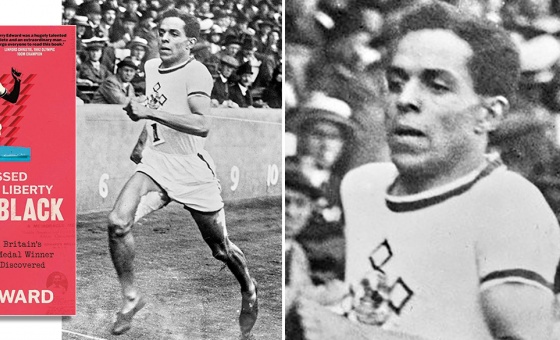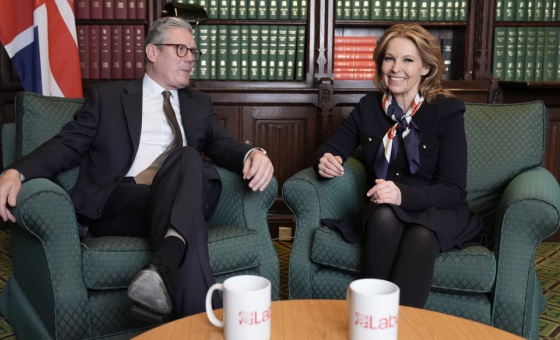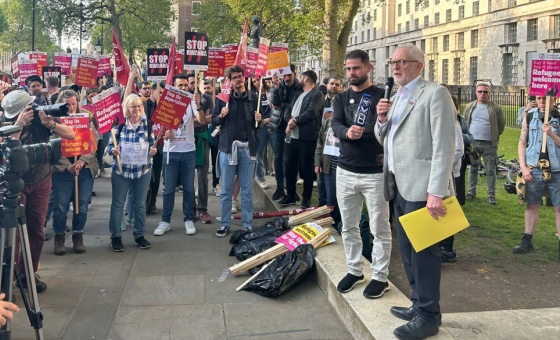This is the last article you can read this month
You can read more article this month
You can read more articles this month
Sorry your limit is up for this month
Reset on:
Please help support the Morning Star by subscribing here
SECRETARY of State for Defence Penny Mordaunt has announced that she plans to end the “chilling threat of probes into past offences by British troops in the North of Ireland.”
Surprisingly, Labour shadow defence secretary Nia Griffith, MP for Llanelli, jumped to Mordaunt’s defence, saying she was “glad” to hear of the government’s plans to grant former soldiers immunity from potential prosecution.
Maybe it was when someone pointed out to Griffith that if anything similar to a “statute of limitations” was to be introduced, it would put the British government alongside Robert Mugabe, Chile and Argentina, who all used it to protect their soldiers under a military dictatorship, that she appeared to find reverse gear and issued a revised statement saying: “Labour opposes any blanket immunity and stressed that the proposals did not apply to Northern Ireland, where the Good Friday Agreement and peace process remains paramount.”
However there were no surprises when Radio Ulster looked to former soldier Richard Kemp for comment on Mordaunt’s plans.
As well as the normal lines trotted out relating to veterans being hounded instead of terrorists, Kemp suggested the British government was in fear of the political power of Sinn Fein, saying: “Sinn Fein has insisted on these prosecutions and investigations of former soldiers and I think the government is terrified of angering Sinn Fein by stopping them.”
Aside from failing to provide one shred of evidence to support his allegations, it seems Kemp has forgotten that it is the DUP which is propping up the government and possibly poses more of a threat to the Tory Party remaining in power, and unless there are sufficient grounds for prosecution of a former soldier, no political party could insist on one, not even Sinn Fein.
Another argument against reopening investigations into historical deaths during the Troubles is that they have already been investigated, so what’s the point?
A fair question to which there are many answers.
First, in some incidents, the Ballymurphy massacre for one, there was no independent investigation.
The military police alone carried out the investigation, therefore it is essential for the sake of transparency that in such cases a fresh independent investigation is carried out.
In addition, there is a trust and confidence issue. Evidence suggests that the Royal Ulster Constabulary (RUC) was not sufficiently independent or trusted enough to carry out an investigation, and records suggest there was collusion and cover-up.
Moreover, in many cases involving the death of unarmed civilians, evidence that wasn’t available at the time, or was available but was ignored, is now there to be examined.
In the same interview, Kemp went on to say: “Soldiers found themselves in some very tough situations. A very small number of cases, soldiers have made mistakes, have got things wrong, acting often under pressure and are now being hounded while terrorists who went out to kill have been let off.”
This generalisation by Kemp can’t go unchallenged. The suggestion that all deaths of civilians were caused because the soldier responsible made a mistake or got things wrong under pressure is untrue.
Moreover, it is an insult to the many young soldiers who remained unbiased to the political situation while serving in the north of Ireland under very difficult circumstances.
Yes, some soldiers did “make mistakes or got it wrong,” resulting in an innocent life lost. However, as members of the families fighting for the truth have told me, it’s not just the death of a loved one that hurts, but the lies, deceit and cover-up which followed that added to the pain, and that pain is worse when the death in question is that of a child, a child like Majella O’Hare, for instance.
On a bright summer’s day in 1976, seconds after passing through a British army checkpoint in Co Armagh on her way to church, 12-year-old Majella dropped to the ground after being shot twice in the back by a member of 3rd Battalion Parachute regiment.
Majella died from her injuries a short time later in the military helicopter that was transporting her to hospital.
Despite the soldier’s claim that he fired the shots in response to an IRA sniper, he was initially charged with Majella’s murder.
However by the time the case was ready for trial, the charge had been reduced to manslaughter. Appearing before Lord Justice Maurice Gibson without a jury, and despite there being no independent evidence corroborating the soldier’s story of a IRA sniper, Lord Justice Gibson agreed with the soldier that there probably had been a gunman.
In August 2010 after a reinvestigation by the Historical Enquiries Team (HET), it was found that there was no evidence to suggest there had ever been a gunman present at the time of the shooting.
Following this decision, HET director Dave Cox called on the British army to apologise for killing Majella. In 2011, then defence secretary Liam Fox wrote to Majella’s mother, Mary O’Hare, correcting the army’s account of events and acknowledging that the explanation given by the soldier during the court hearing was “unlikely.”
No matter how hard those who oppose the investigation of former soldiers try to argue their case, the context that led to the death of 12-year-old Majella was not a mistake that occurred under pressure in the “heat of battle.”
Majella was a child on her way to church when, for whatever reason but without provocation, the soldier released the safety catch on his loaded machine-gun and applied enough pressure on the trigger to fire three shots, two of which struck Majella in the back.
Finally, Kemp claimed that some people in the north of Ireland wish to rewrite history. And Kemp is absolutely correct — although not in the way he implied. In many cases, unarmed innocent people who were killed have been statistically recorded as members of the IRA.
So, yes, the families are trying to correct the facts, and if by obtaining the truth it follows that the historic accounts and statistics are rewritten, then so be it.












